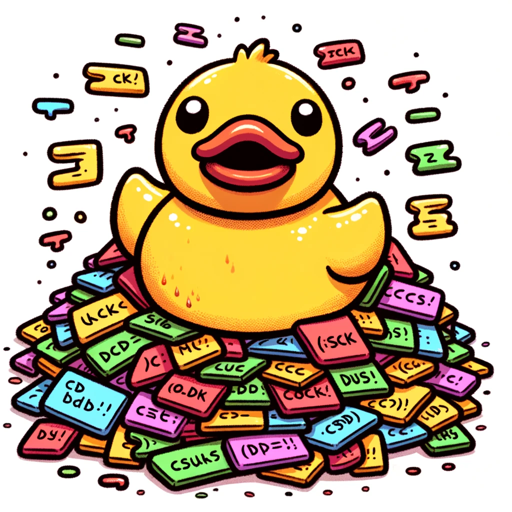C Programming Language-C programming language guide
Empower your coding with AI-powered C programming insights.
Reflect on the evolution of C since its inception.
Discuss how C has influenced modern programming languages.
Share insights on the philosophy behind C's design.
Explore how C can be used in innovative ways today.
Related Tools
Load More
C++ (Cpp)
Your personal highly sophisticated C++ (Cpp) copilot, with a focus on efficient, scalable and high-quality production code.

Assembly Language Expert
Guidance on Assembly Language programming, including coding, translation, and debugging.

单片机工程师 with Keil uVision 5 - C Code Explainer
简明易懂的嵌入式系统教学工程师

AVR Assembly Master
Expert in AVR assembly programming and debugging.

Professor Rust
Rust expert, translates queries to English, replies in Russian.

C++ Expert
C++ code expert with strict data privacy
20.0 / 5 (200 votes)
Introduction to the C Programming Language
The C programming language was developed in the early 1970s by Dennis Ritchie at Bell Labs. It was designed for system programming, particularly for writing operating systems. C provides low-level access to memory, simple set of keywords, and clean style. Its design encourages cross-platform programming. The language has a rich library, making it versatile for various types of software development. Example: Writing an operating system kernel, such as Linux, which is primarily written in C.

Main Functions of the C Programming Language
File I/O Operations
Example
Using fopen, fread, fwrite, and fclose to handle file operations.
Scenario
Developing a text editor where the user can create, read, edit, and save files. For instance, implementing file open and save functionalities in a text editor.
Memory Management
Example
Using malloc, calloc, realloc, and free to dynamically manage memory.
Scenario
Developing a program that processes large amounts of data. Memory management functions are used to allocate and free memory as needed, ensuring efficient use of resources. An example is a database engine that needs to manage memory dynamically for storing and retrieving data.
Inter-Process Communication (IPC)
Example
Using pipes, message queues, and shared memory for communication between processes.
Scenario
Building a client-server application where multiple processes need to communicate. For instance, using shared memory to share data between different processes of a server handling multiple client requests simultaneously.
Ideal Users of the C Programming Language
System Programmers
These users work on developing operating systems, device drivers, and embedded systems. They benefit from C's efficiency and low-level capabilities, allowing them to write performance-critical code with fine control over hardware.
Application Developers
Programmers who build performance-sensitive applications such as database engines, graphics engines, and real-time systems. They use C to achieve high performance and efficiency, crucial for applications that require fast processing and minimal latency.

How to Use C Programming Language
Visit aichatonline.org
Visit aichatonline.org for a free trial without login, also no need for ChatGPT Plus.
Install a C Compiler
Download and install a C compiler such as GCC (GNU Compiler Collection) or Clang.
Set Up Your Development Environment
Choose an IDE (Integrated Development Environment) like Visual Studio Code, Code::Blocks, or Eclipse for easier coding, debugging, and execution.
Write and Compile Your Code
Write your C code using your chosen IDE or a simple text editor, then compile it using your C compiler.
Run and Debug Your Programs
Execute your compiled programs and use debugging tools to find and fix any errors in your code.
Try other advanced and practical GPTs
The Riddler
AI-powered Riddle Solver

Game Theory Guru
AI-powered tool for game theory insights.

李白
AI-powered classical poetry experience

SEO Audit Tool
AI-Powered SEO Insights for Optimal Performance

Apps Script
Automate with AI using Google Apps Script

Yello Ducky
Your AI-powered coding assistant

♣️ ClubGPT ♣️ - developer team in one
AI-Powered Development at Your Fingertips

Pixarize My Photo
AI-powered Pixar-like photo transformation

Software Intern
AI-powered advanced coding assistant

论文文献总结
AI-Powered Summarization for Academic Success

주식 파트너
AI-driven insights for smarter investments.

Love ∞ Infinity(学園恋愛シミュレーション)
AI-powered romance simulation game
- Game Development
- Software Development
- Embedded Systems
- System Programming
- High-Performance Computing
Detailed Q&A About C Programming Language
What is C programming language?
C is a general-purpose, procedural computer programming language supporting structured programming, lexical variable scope, and recursion, with a static type system.
What are the main features of C?
Key features of C include low-level memory access, a simple set of keywords, and a clean style, making it suitable for system programming like operating system or compiler development.
How do you manage memory in C?
Memory management in C is done manually using functions like malloc(), calloc(), realloc(), and free() from the standard library.
What are pointers in C?
Pointers are variables that store memory addresses. They are used for dynamic memory allocation, arrays, and functions, providing powerful capabilities for manipulating data structures and memory.
What are some common applications of C?
C is widely used in system/software development, game programming, embedded systems, and applications requiring high-performance computing.